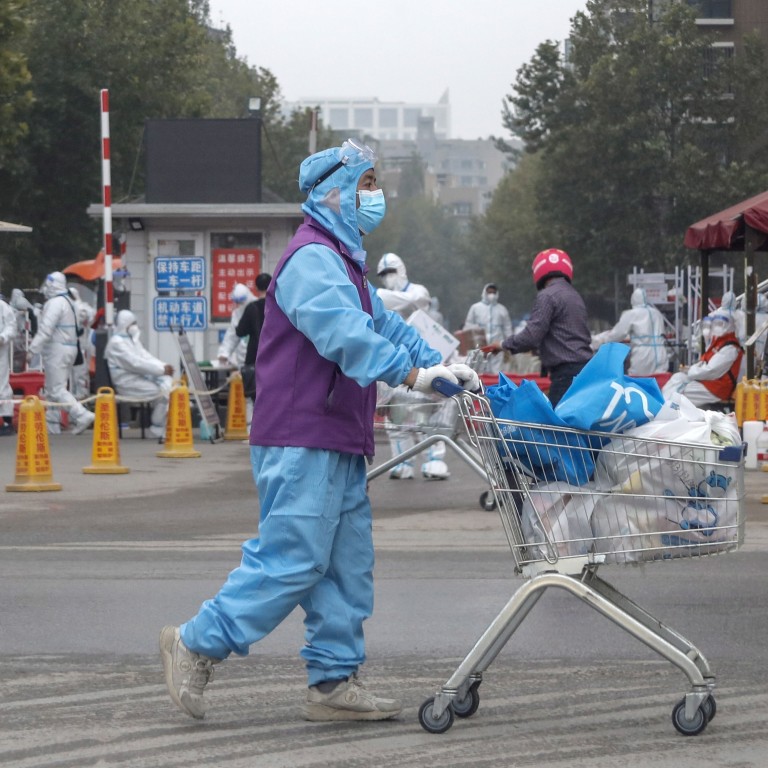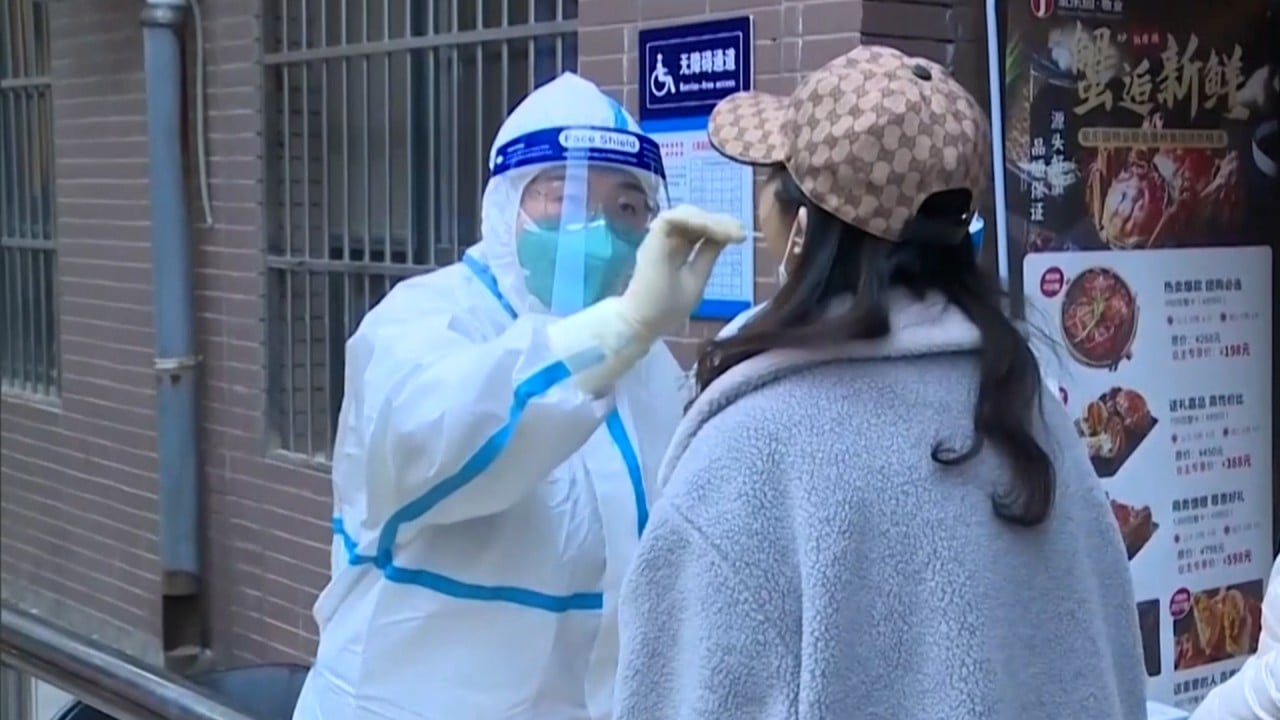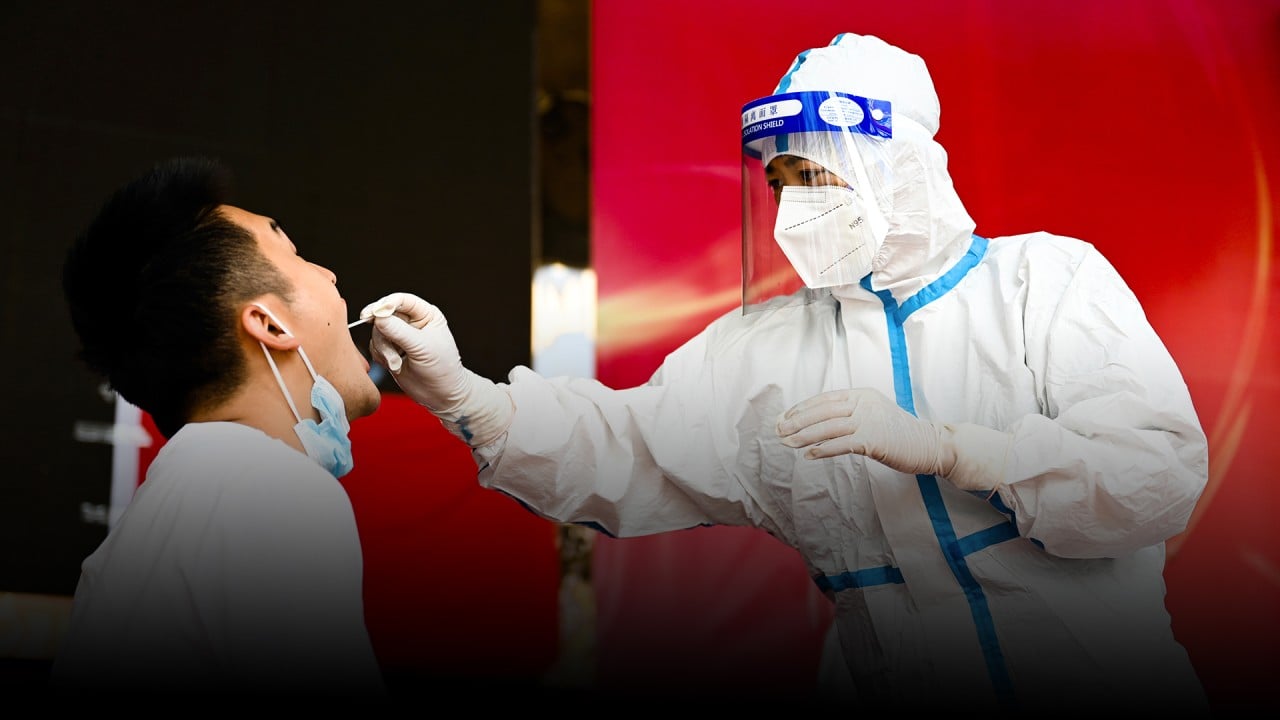
Beijing bolts doors to coronavirus as Communist Party meeting and Olympics loom
- Latest outbreak prompts tight measures in three districts and those arriving in the capital from at-risk counties are refused entry
- Linked to a Shanghai couple’s road trip, the outbreak has reached 11 provinces and caused postponement of Beijing marathon
Xu tested positive for the Delta variant three days after his trip, and by last Saturday his wife and son had been confirmed positive, too.

01:51
China steps up zero-tolerance approach to Covid-19 as Delta fears grow ahead of Beijing Olympics
He and his wife had 114 close contacts, who were themselves in contact with a total of 197 others in southern Beijing’s Fengtai district, where they live – one of three districts in which cases were concentrated, the district government said. The son had 26 close contacts, who were in contact with a further 84.
The city will refuse entry to those who have travelled to counties with infections in the previous 14 days, even if they are Beijing residents, police said on Sunday. Anyone seeking to enter the capital needed to show a negative test from within the previous two days, and be monitored for 14 days after arrival.
The capital accounted for two of the 35 new symptomatic local cases reported nationwide on Sunday, the National Health Commission said on Monday. Three asymptomatic local cases were also found, but China does not include those in its official tally.
Other countries are giving up ‘Covid zero’. China wants to wait and see
The outbreak, which has expanded to 11 provinces and municipalities, was traced to the couple’s road trip, involving seven retirees who travelled to Gansu and Inner Mongolia autonomous region.
At least 20 cases have sprung from an Inner Mongolia restaurant at which the group dined. More than 400 travellers were unable to leave Lanzhou, in Gansu, while awaiting Covid-19 test results, a government spokesman said.
Two other road trips were also involved, the Beijing municipal government said on Monday. A group of five, who later tested positive, failed to inform local authorities of their return to the capital and had a combined 1,534 close contacts. Another group of four were in home quarantine after they returned to Beijing and one of their 310 close contacts tested positive.

06:05
As more countries ditch ‘zero-Covid’ policy, why is China opting to ‘wait and see’?
“We must speed up transmission source tracing and identify high-risk persons immediately and deploy lockdowns, preventing infections outside controlled areas,” said Beijing’s Covid-19 response unit, led by the capital’s Communist Party chief Cai Qi, on Sunday.
“Whenever there is an infected person, their residence, workplace and any venue they have been to should be closed immediately.”
Beijing citizens were on high alert, with the outbreak hitting close to home.
“Knowing there’s an outbreak is one thing; witnessing a neighbourhood being cordoned off is another,” said Huang Shuang, who works for a delivery company.
Communist Party number 3 hails superiority of ‘Chinese democracy’
The 35-year-old is getting nervous because confirmed cases were reported in a residential building less than 500 metres (1,640 feet) from her home in Fengtai.
Ground-floor shops and restaurants that Huang frequented were closed. A dozen security guards sealed off her neighbourhood with steel fences, with non-residents barred.
Already used to tight control measures, she had bought cooking oil, rice and instant noodles. “Given that Beijing is quite experienced in handling outbreaks, I’m not worried that stores will run out of daily necessities,” she said.
Steve Mao, a programmer in the northern Changping district – another area with new cases – bought fruit and vegetables, finding plentiful supply.
“There’s no panic buying,” the 42-year-old said. “After all, we are used to the tight control mode when there’s an outbreak. I’m just unhappy that I had to cancel a ski trip to Zhangjiakou.”
Set to host several of the Olympic events, Zhangjiakou, 220km (140 miles) northwest of the capital, has required people from Changping to complete 14 days’ quarantine on arrival.
Having two close contacts of confirmed cases living in his neighbourhood has rattled Mao. “We are still waiting for the formal information release from the Chinese Centre for Disease Control and Prevention,” he said. “Until then, our neighbourhood has banned non-residents from entering.”
Despite 20.5 million of its 21.9 million people being fully vaccinated as of Sunday, and fewer new daily cases than in some other areas, the authorities in Beijing have used stricter measures than were enforced elsewhere.
“Beijing has always been stricter with control measures,” said Dr Leung Chi-chiu, a respiratory medicine specialist in Hong Kong. “It’s the capital, has a large population and holds many international events.”
Police were investigating two people for failing to report to the authorities after travelling to Inner Mongolia. The managers of pharmacies that sold them over-the-counter medicines were also investigated for not taking their temperatures before letting them enter.


